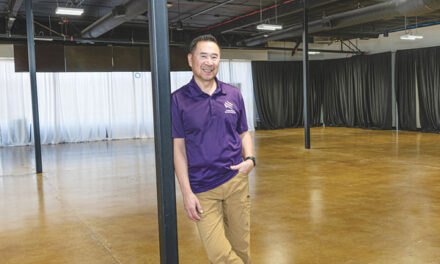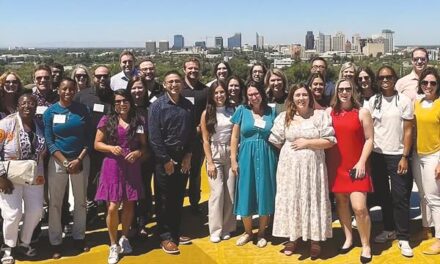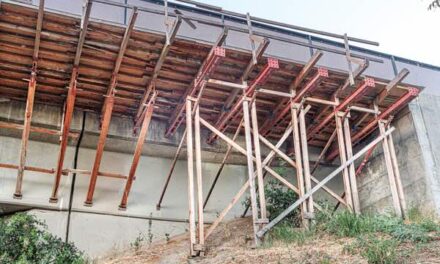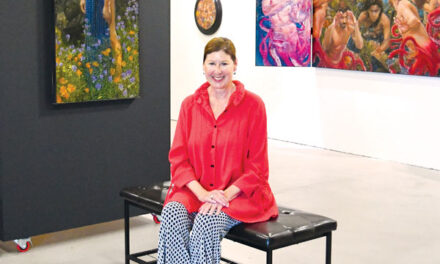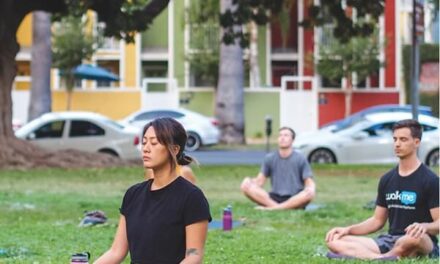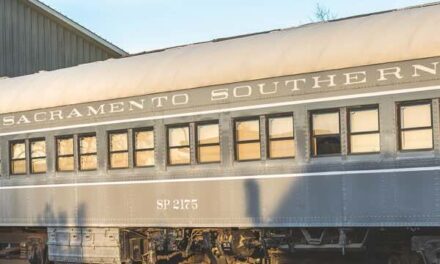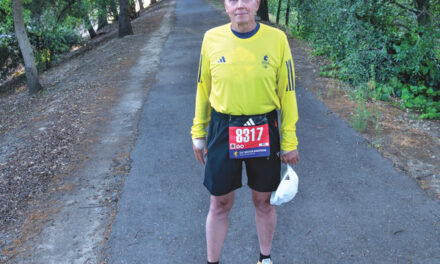The Essential Workers
Recognizing everyday heroes who keep our lives on track
November 2020
As we cope with the unprecedented upheavals brought on by the pandemic, Inside Sacramento wants to recognize the essential workers who provide critical services and much-needed normalcy. How has the pandemic changed their workdays? How can the public make their jobs easier? How do they feel about providing essential services to our communities? Meet the bus driver, counterperson and recycle truck driver. We asked them to share their stories:
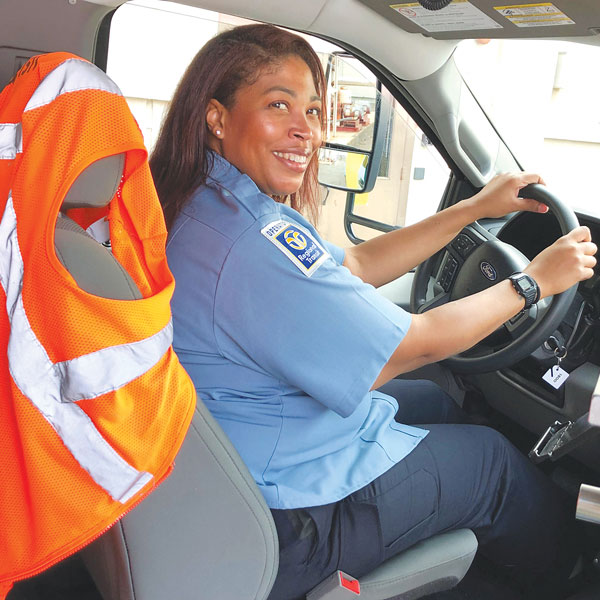
Stephanie McClain
Microtransit Operator
Stephanie McClain joined Regional Transit in March, right before the pandemic hit. She drives for SmaRT Ride, the dial-a-ride service. Her route includes neighborhoods surrounding Arden Way, Eastern Avenue and Fair Oaks Boulevard.
Every day depends on the passengers. Typically, I have the same repeat riders who use the system. So it depends on where they are going that day, but they usually go to the same place—the grocery store, a doctor’s appointment. We pick them up and drop them off. But we can’t wait. They have to rebook it so it’s back on our tablet.
Now it’s mandatory to wear a mask to ride. We have extra masks to give out to passengers. It’s mandatory for drivers too, except if you don’t have anyone on the bus—if you’re by yourself.
My favorite part of the job are the people. Interacting with the public. I love that. I have an older woman—she’s a real sweetheart. She’s a senior. I love seeing her. She always has a smile. I see her almost every day. She has a son who reminds me of my son because my son has ADHD. They both have special needs. I know these children are special. You can’t help but love them. Her son likes to go out often. Whenever he wants to get out, she takes him out.
I love RT. I am second-generation working for RT. My aunt and uncle both worked and retired as supervisors for RT. They spoke so highly of Regional Transit that I wanted to be part of the family. It seemed like a great place to work and I found out it was.
I can tell you that ridership has decreased because of the pandemic. We are all in a scary time. Everyone’s fearful of social interaction with other human beings. It’s so weird to see people afraid to be near other people, but for valid reasons.
I think it’s a very important role we play. A lot of people didn’t know or didn’t look at essential workers in that way. Whether it’s COVID or normal, we have an obligation to the community to be out there. To help people get from point A to point B. The people who rely on public transportation have to get to work, to provide for their families, to go to doctor’s appointments. Getting people where they need to be safely is the No. 1 priority.
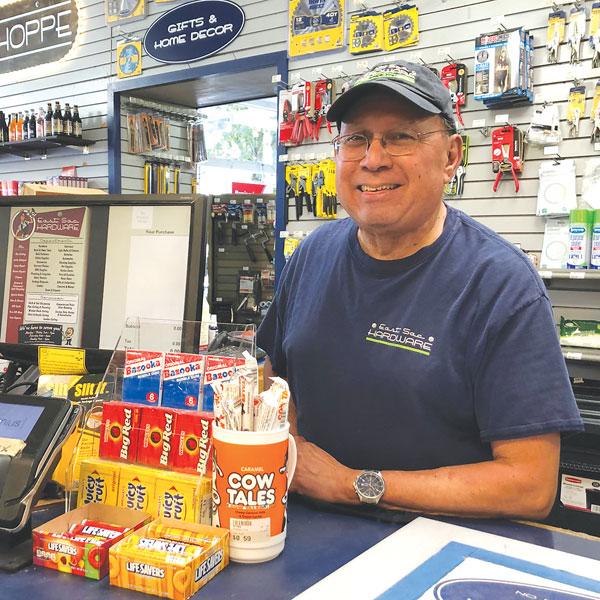
Henry Carpio
Counterman
Henry Carpio has been serving customers at East Sac Hardware for two and half years. He works 8 a.m. to 3 p.m. four days a week.
This is a semi-retirement job for me. I live in Midtown, a little over 2 miles away. I bike to work. Keeps me in shape. I can retire fully right now, but it’s too boring. I like to keep busy. It’s perfect for somebody over 70, so it’s just right for me.
I worked for the Macy’s Downtown part time. But I wasn’t having as much fun as I wanted to. Here I have fun. I interact with people. It’s just enough hours to keep me busy. I can take time off, and my wife and I can travel.
I had told my wife if there was ever an opening at East Sac Hardware, I would love to work there. It’s such a neat place to be. Then they posted an ad on Craig’s List. I came in and interviewed with (Sheree Johnston, owner of East Sac Hardware) for about 10 minutes. I said you probably want some references. She said “No, I already Yelped you. You said you worked at Macy’s. Good reviews. You’re hired.”
At the beginning of the pandemic, it was crazy busy here. People wanted masks and disinfectants. Stuff we couldn’t keep in stock. We are still having a hard time with masks and AC filters for homes. For a while it was hard to keep any cleaning supplies in stock. So many people are doing home projects now, we can’t keep up with the demand for mason jars for canning.
I am usually at the counter. Greeting people. Directing people. Helping people find stuff. I meet 90 percent of the people coming through the door. I’ve always been a good people person. Sheree says I handle people really well. Even when they get out of hand and get a little testy, I can diffuse most situations.
We had a funny incident about two weeks ago when this fellow said, “I work for COVID.” Those were his exact words. “We don’t have to wear a mask.” No, you’re wrong. If you refuse to wear a mask, you have to leave. He started arguing with us. We just said, there’s the door, please leave. We raised our voices a little, but we are always polite. We try not to lose our temper. We don’t want to lose our privilege of serving our community.
There were five people waiting to pay for stuff. As soon as he started to walk out, they clapped and cheered for us. It was great. People backed us up. It’s not just us. It’s the customers. They want to feel safe here too. So we follow the rules. There are no exceptions. I don’t think it’s too much to ask.
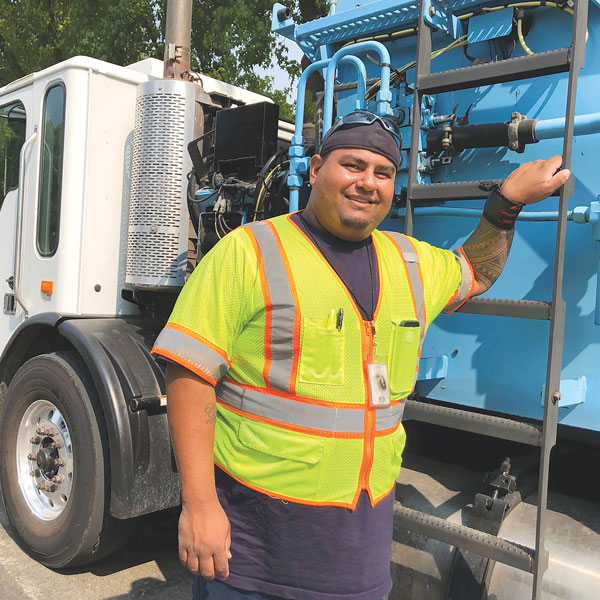
Manuel Castillo
Integrated Waste Equipment Operator
Manuel Castillo joined the city Department of Public Works, Recycling & Solid Waste Division, as a recycle truck driver in 2017. Each day he services a different neighborhood, including River Park, Curtis Park, South Land Park, Meadowview and Sheldon to College Greens.
We have a lot of interaction with the community. Since we are city workers, we are the go-to directory. As soon as we pull up to a house, they run out with whatever questions they have. And we direct them to where they need to go, who to call. 311 is the main directory. “I have a leaky pipe in my backyard.” 311 will direct you to utilities. I’ve had customers say, “I just received this parking ticket, where do I pay it?” We never turn them away—we try to guide them.
Once you do the route long enough, you memorize your streets. We run our routes as we see fit as far as safety and efficiency. Next Monday, the can count (number of cans emptied into the truck) is about 1,400. I average 1,000 or more a day. Typically, I go to the dump two or three times a day.
High winds make for a long, messy day. We try our best to clean up as much as we can. But I can pull onto a street and there will be seven cans knocked over and blowing down the street, and I can’t chase down every piece of paper.
People can help by sorting correctly. They can break down boxes. Try to eliminate over-stacked cans because that’s one of the main culprits on tip overs. They are top heavy. Go to sacrecycle.org—there are steps and procedures they can follow. Educating customers is definitely helpful. We have so many resources they don’t utilize.
Every route has gotten heavier because everybody’s home. There’s a lot more waste. There’s a lot more online shopping, so there’s more recyclables. You can feel your truck is heavier than usual.
In River Park, there’s a school right there. Before, I would work around the school time so I didn’t have to deal with traffic, kids, things of that nature. Now everybody’s home. They’re out in the streets playing, following alongside of us. There’s a lot of strollers, people on the sidewalk. We have to be constantly scanning.
There’s a big misconception that we are just pushing a button and snacking on chips, but it gets pretty hectic. The mirrors are our biggest friend, our biggest asset. The truck has six mirrors. I use every single one of them along with three cameras. Before that truck moves, I am checking all of them. Knock on wood—for three years I’ve been accident free, no incidents, nothing.



